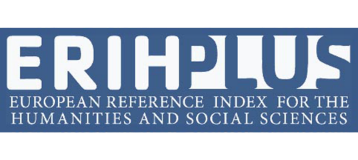The future that we are leaving behind: An experimental online study about intergenerational sustainability dilemmas
DOI:
https://doi.org/10.37511/Resumen
Threats such as climate change require people to make decisions that benefit future generations. Building on previous research, we evaluate intergenerational decisions in an experimental climate game in a sample of university students from [details omitted for double-blind reviewing]. A total of 184 participants were exposed to one of four treatments and then played in groups or "generations" a round of the Multi-Level Conflict in Climate Change Mitigation developed by Böhm, Gürerk & Lauer (2020) with some variations. In addition, they completed some questionnaires. The results suggest that the treatments did not work as expected, i.e. there was no increase in long-term contributions for exposure to the experimental treatments compared to the control, nor among the treatments. On average, 25% of participants contributed 15 points to the long-term pool, which is the intergenerational optimum to benefit the next generation. This indicates a low percentage of cooperation with the future in general. Those who contributed most to the long-term pool were ideologically self-positioned on the left and had a higher perception of the social risk of climate change. Although the results did not provide evidence to support the hypothesis, this study sheds light on the pros and cons of the proposed methodology and makes visible an issue that has not been extensively studied in the Latin American context, namely concern for the future.
Descargas
Referencias
Acuña, I., Zalazar-Jaime, M. F., Michelini, Y., Guzmán, J. I., Godoy, J. C., Galarce, E., & Joireman, J. (2020). Argentine validation of the Consideration of Future Consequences Scale (CFC-14). Acta Colombiana de Psicología, 23(1), 346-356. doi: 10.14718/acp.2020.23.1.16
Allport, G. W. (1954). The nature of prejudice. Cambridge, MA: Addison-Wesley
Arechar, A. A., Gächter, S., & Molleman, L. (2018). Conducting interactive experiments online. Experimental economics, 21, 99-131.doi: 10.1007/s10683-017-9527-2
Author (2019)
Bargh, J. A., & Chartrand, T. L. (2000). Studying the mind in the middle: A practical guide to priming and automaticity research. Handbook of research methods in social psychology, 253-285.
Author (2018)
Belesova, K., Heymann, D. L., & Haines, A. (2020). Integrating climate action for health into Covid-19 recovery plans. Bmj, 370. doi: 10.1136/bmj.m3169
Belot, M., Duch, R., & Miller, L. (2015). A comprehensive comparison of students and non-students in classic experimental games. Journal of Economic Behavior & Organization, 113, 26-33. doi: 10.1016/j.jebo.2015.02.007
Benz, M., & Meier, S. (2008). Do people behave in experiments as in the field? —evidence from donations. Experimental economics, 11, 268-281. doi: 10.1007/s10683-007-9192-y
Blanca Mena, M. J., Alarcón Postigo, R., Arnau Gras, J., Bono Cabré, R., & Bendayan, R. (2017). Non-normal data: Is ANOVA still a valid option? Psicothema, 29(4), 52-557. doi: 10.7334/psicothema2016.383
Böhm, R., Gürerk, Ö., & Lauer, T. (2020). Nudging climate change mitigation: a laboratory experiment with inter-generational public goods. Games, 11(4), 1-20. doi: 10.3390/g11040042
Chaudhuri, A., Graziano, S., & Maitra, P. (2006). Social learning and norms in a public goods experiment with inter-generational advice. The Review of Economic Studies, 73(2), 357-380. https://doi.org/10.1111/j.1467-937X.2006.0379.x
Chen, Y., Wu, J., & Luan, S. (2023). The mechanisms and promotion strategies of cooperation in the intergenerational dilemma. Advances in Psychological Science, 31(9), 1728-1741. https://journal.psych.ac.cn/xlkxjz/EN/10.3724/SP.J.1042.2023.01728
De Groot, J. I., & Steg, L. (2008). Value orientations to explain beliefs related to environmental significant behavior: How to measure egoistic, altruistic, and biospheric value orientations. Environment and Behavior, 40(3), 330-354. doi: 10.1177/0013916506297831
De Groot, J., & Steg, L. (2007). General beliefs and the theory of planned behavior: The role of environmental concerns in the TPB. Journal of Applied Social Psychology, 37(8), 1817-1836. doi: 10.1111/j.1559-1816.2007.00239.x
Faul, F., Erdfelder, E., Lang, A. G., & Buchner, A. (2007). G* Power 3: A flexible statistical power analysis program for the social, behavioral, and biomedical sciences. Behavior research methods, 39(2), 175-191. doi: 10.3758/BF03193146
Fischer, M. E., Irlenbusch, B., & Sadrieh, A. (2004). An intergenerational common pool resource experiment. Journal of environmental economics and management, 48(2), 811-836. doi: 10.1016/j.jeem.2003.12.002
Giamattei, M., Yahosseini, K. S., Gächter, S., & Molleman, L. (2020). LIONESS Lab: A free web-based platform for conducting interactive experiments online. Journal of the Economic Science Association, 6(1), 95-111. doi: 10.1007/s40881-020-00087-0
Giovannini, E., Benczur, P., Campolongo, F., Cariboni, J., & Manca, A. R. (2020). Time for transformative resilience: the COVID-19 emergency (No. JRC120489). Joint Research Centre (Seville site).https://ideas.repec.org/p/ipt/iptwpa/jrc120489.html
Grolleau, G., Sutan, A., & Vranceanu, R. (2016). Do people contribute more to intra-temporal or inter-temporal public goods? Research in Economics, 70(1), 186-195. doi: 10.1016/j.rie.2015.05.001
Hauser, O. P., Rand, D. G., Peysakhovich, A., & Nowak, M. A. (2014). Cooperating with the future. Nature, 511(7508), 220-223. doi: 10.1038/nature13530
Hecke, T. V. (2012). Power study of anova versus Kruskal-Wallis test. Journal of Statistics and Management Systems, 15(2-3), 241-247. doi: 10.1080/09720510.2012.10701623
Hernandez, M., Chen, Y. R., & Wade-Benzoni, K. A. (2006). Toward an understanding of psychological distance reduction between generations: A cross-cultural perspective. In National culture and groups (Vol. 9, pp. 3-20). Emerald Group Publishing Limited.
Hurlstone, M. J., Price, A., Wang, S., Leviston, Z., & Walker, I. (2020). Activating the legacy motive mitigates intergenerational discounting in the climate game. Global Environmental Change, 60, 102008. doi: 10.1016/j.gloenvcha.2019.102008
Husnu, S., & Crisp, R. J. (2010). Elaboration enhances the imagined contact effect. Journal of Experimental Social Psychology, 46(6), 943-950. doi: 10.1016/j.jesp.2010.05.014
Inoue, Y., Himichi, T., Mifune, N., & Saijo, T. (2021). People prefer joint outcome prosocial resource distribution towards future others. Scientific Reports, 11(1), 5373. doi: 10.1038/s41598-021-84796-4
IPCC, 2023: Climate Change 2023: Synthesis Report. Contribution of Working Groups I, II and III to the Sixth Assessment Report of the Intergovernmental Panel on Climate Change [Core Writing Team, H. Lee and J. Romero (eds.)]. IPCC, Geneva, Switzerland, 184 pp., doi: 10.59327/IPCC/AR6-9789291691647.
Ivanova, D., Stadler, K., Steen‐Olsen, K., Wood, R., Vita, G., Tukker, A., & Hertwich, E. G. (2016). Environmental impact assessment of household consumption. Journal of Industrial Ecology, 20(3), 526-536. doi: 10.1111/jiec.12371
Jacquet, J., Hagel, K., Hauert, C., Marotzke, J., Röhl, T., & Milinski, M. (2013). Intra-and intergenerational discounting in the climate game. Nature climate change, 3(12), 1025-1028. doi: 10.1038/NCLIMATE2024
Jakovcevic, A., & Steg, L. (2013). Sustainable transportation in Argentina: Values, beliefs, norms and car use reduction. Transportation Research Part F: Traffic Psychology and Behaviour, 20, 70-79. doi: 10.1016/j.trf.2013.05.005
Jones, N., O’Brien, M., & Ryan, T. (2018). Representation of future generations in United Kingdom policymaking. Futures, 102, 153-163. doi: 0.1016/j.futures.2018.01.007
Kamijo, Y., Komiya, A., Mifune, N., & Saijo, T. (2017). Negotiating with the future: Incorporating imaginary future generations into negotiations. Sustainability Science, 12(3), 409-420. doi: 10.1007/s11625-016-0419-8
Lalot, F., Abrams, D., Ahvenharju, S., & Minkkinen, M. (2021). Being future-conscious during a global crisis: The protective effect of heightened Futures Consciousness in the COVID-19 pandemic. Personality and Individual Differences, 178, 110862. doi: 10.1016/j.paid.2021.110862
Lantz, B. (2013). The impact of sample non‐normality on ANOVA and alternative methods. British Journal of Mathematical and Statistical Psychology, 66(2), 224-244. doi: 10.1111/j.2044-8317.2012.02047.x
Lohse, J., & Waichman, I. (2020). The effects of contemporaneous peer punishment on cooperation with the future. Nature communications, 11(1), 1-8. doi: 10.1038/s41467-020-15661-7
Meleady, R., & Crisp, R. J. (2017). Redefining climate change inaction as temporal intergroup bias: Temporally adapted interventions for reducing prejudice may help elicit environmental protection. Journal of Environmental Psychology, 53, 206-212. doi: 10.1016/j.jenvp.2017.08.005
Meleady, R., & Seger, C. R. (2017). Imagined contact encourages prosocial behaviour towards outgroup members. Group Processes & Intergroup Relations, 20(4), 447-464. doi: 10.1177/1368430215612225
Meleady, R., & Seger, C. R. (2017). Imagined contact encourages prosocial behavior towards outgroup members. Group Processes & Intergroup Relations, 20(4), 447-464. doi: 10.1177/13684302156122
Miles, E., & Crisp, R. J. (2014). A meta-analytic test of the imagined contact hypothesis. Group Processes & Intergroup Relations, 17(1), 3-26. doi: 10.1177/1368430213510573
Nosenzo, D., Quercia, S. & Sefton, M. (2015). Cooperation in small groups: the effect of group size. Experimental Economics, 18, 4–14. doi: 10.1007/s10683-013-9382-8
Author (2019)
Author (2024)
Pearson, A. R., & Schuldt, J. P. (2018). Climate change and intergroup relations: Psychological insights, synergies, and future prospects. Group Processes & Intergroup Relations, 21(3), 373-388. https://doi.org/10.1177/1368430217747750
Peters, J. (2017). Heterogeneity and Voting in Intergenerational Common Pool Problems. Master Degree Thesis in Business Administration. Faculteit der Managementwetenschappen
Rodríguez M., Sabucedo J., Costa M. (1993). Factores motivacionales y psicosociales asociados a los distintos tipos de acción política. Psicología Política, 7, 19-38. https://dialnet.unirioja.es/servlet/articulo?codigo=2826349
Shahen, M. E., Masaya, W., Kotani, K., & Saijo, T. (2020). Motivational factors in intergenerational sustainability dilemma: A post-interview analysis. Sustainability, 12(17), 7078. doi: 10.3390/su12177078
Shahrier, S., Kotani, K., & Saijo, T. (2017). Intergenerational sustainability dilemma and the degree of capitalism in societies: a field experiment. Sustainability science, 12(6), 957-967. doi: 10.1007/s11625-017-0447-z
Sherstyuk, K., Tarui, N., Ravago, M. L. V., & Saijo, T. (2016). Intergenerational games with dynamic externalities and climate change experiments. Journal of the Association of Environmental and Resource Economists, 3(2), 247-281.
Steg, L., Perlaviciute, G., Van der Werff, E., & Lurvink, J. (2014). The significance of hedonic values for environmentally relevant attitudes, preferences, and actions. Environment and behavior, 46(2), 163-192. doi: 10.1177/0013916512454730
Swim, J. K., & Bloodhart, B. (2018). The intergroup foundations of climate change justice. Group Processes & Intergroup Relations, 21(3), 472-496. doi: 10.1177/1368430217745366
Tajfel, H. & Turner, J. C. (1986). The social identity theory of intergroup behaviour. In S.Worchel & W. Austin (Eds.), Psychology of intergroup relations (pp. 7–24). Chicago, IL: Nelson Hall.
Turner, J. C., Hogg, M. A., Oakes, P. J., Reicher, S.D. & Wetherell, M. S. (1987). Rediscovering the social group: A self-categorization theory. Oxford, UK: Blackwell
Ungaretti, J., & Etchezahar, E. (2016). Visiones del mundo, autoritarismo y dominancia en diferentes expresiones de prejuicio. Acta de investigación psicológica, 6(3), 2500-2508. doi: 10.1016/j.aipprr.2016.11.004
Van der Linden, S. (2015). The social-psychological determinants of climate change risk perceptions: Towards a comprehensive model. Journal of Environmental Psychology, 41, 112-124. doi: 10.1016/j.aipprr.2016.11.004
Van Dijk, E., & De Dreu, C. K. (2021). Experimental games and social decision making. Annual Review of Psychology, 72(1), 415-438 doi: 10.1146/annurev-psych-081420-110718
Van Lange, P. A., & Rand, D. G. (2022). Human cooperation and the crises of climate change, COVID-19, and misinformation. Annual Review of Psychology, 73, 379-402. doi: 10.1146/annurev-psych-020821-110044
Van Lange, P. A., Joireman, J., Parks, C. D., & Van Dijk, E. (2013). The psychology of social dilemmas: A review. Organizational Behavior and Human Decision Processes, 120(2), 125-141. doi: 10.1016/j.obhdp.2012.11.003
van Treek, M., Majer, J. M., Zhang, H., Zhang, K., & Trötschel, R. (2023). Present generation’s negotiators realize their interests at the cost of future generations. Journal of Environmental Psychology, 91, 102126. doi: 10.1016/j.jenvp.2023.102126
Wade‐Benzoni, K. A. (2008). Maple trees and weeping willows: The role of time, uncertainty, and affinity in intergenerational decisions. Negotiation and Conflict Management Research, 1(3), 220-245. doi: 10.1111/j.1750-4716.2008.00014.x
Wade-Benzoni, K. A., & Tost, L. P. (2009). The egoism and altruism of intergenerational behavior. Personality and Social Psychology Review, 13(3), 165-193. doi: 10.1177/1088868309339317
Watkins, H. M., & Goodwin, G. P. (2020). Reflecting on sacrifices made by past generations increases a sense of obligation towards future generations. Personality and Social Psychology Bulletin, 46(7), 995-1012. doi: 10.1177/014616721988361
Descargas
Publicado
Número
Sección
Licencia
Derechos de autor 2025 Tesis Psicológica

Esta obra está bajo una licencia internacional Creative Commons Atribución-NoComercial-CompartirIgual 4.0.

Esta obra está bajo una Licencia Creative Commons Atribución-NoComercial-














